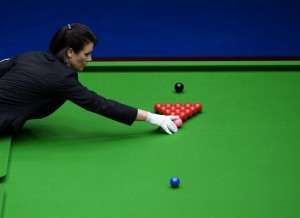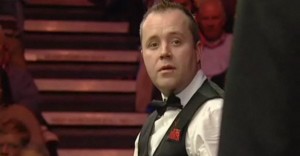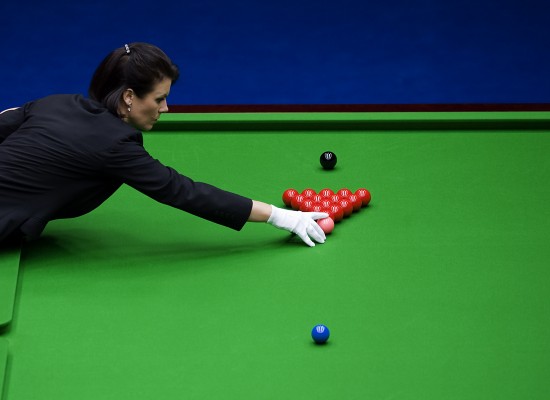
Interesting news today on The Snooker Blog as it transpires that following the success of the Snooker Shootout which amongst other innovations introduced the ‘ball in hand’ rule to snooker, has led to calls for changes to the miss rule…
The ‘miss rule’ has long since been hotly debated, in the past when referees were more able to use their judgment (Alan Chamberlain sticks in my mind for this), and more recently when the miss has become almost automatic in most situations.
In recent years the most controversial incident that I can remember was that during the 2009 UK Championship semi-final when having failed to escape from a tough snooker a few times, Ronnie O’Sullivan fouled a red with his hand and because he hadn’t actually missed anything, a miss could not be called. This loophole started a bit of a debate at the time and this would appear to have come to a head with this letter from WPBSA chairman Jason Ferguson to the players as originally published at The Snooker Blog:
“Dear Member
Miss Rule
Following the success of the Ceasarcasino.com Snooker Shoot Out a large number of players have approached me regarding changes to the miss rule.
We realise that this is not a decision to be taken lightly, which is why we wish is canvas your views as to whether this rule should continue as it is or if there is sufficient agreement in principle amongst the players to delete or amend this rule from the rulebook in the long term and for the benefit of snooker worldwide.
We would like to obtain players initial feedback on a number of opinions prior to any decision being taken.
Consultation on the miss rule will not be a quick process. Therefore we have started with a simple tick box sheet. Please complete and return noting your views and opinions.
Jason Ferguson
Miss Rule Consultation
1. Retain the miss rule as it is – YES / NO
2. Abolish the miss rule in place of the following:
for all fouls or failing to hit the ball on:
a. Ball in hand in the “D” Only
b. Ball in hand with a free table
3. Ball in hand with a free table after 3 misses have been called
4. I would be willing to trial amended rules for one ranking event.
5. Any other comments”

So what do we think?
Personally I would not be particularly opposed to some sort of change to the miss rule but I think that ball in hand with a free table in a ranking event would be far too draconian and too much of a penalty relative to the fouls in question. As we saw in the Shootout, frames that would usually be tight were rendered all but over following a miss with the rule in operation and while interesting for that event, I think that it would lead to a decrease in the quality of the snooker in full ranking events.
What of the watered down ball in hand after three misses suggestion? While still potentially awkward, I can see the merits to it as it would eliminate the situation that sometimes arises where a player can end up playing same shot eight times, but would still give them a sighter and the chance to play a good shot. Like the rule that says a player can only miss a ball twice when they can see it full ball without conceding the frame, it would also add another element of pressure to such occasions.
Conversely though, what if a player had their opponent in an excellent snooker would would rather see them play the shot over and over again to get more penalty points? Might there be a situation where removing the miss rule could actually work to the disadvantage of the player with the ball in hand?
Ball in hand in the D only is another interesting variation, though it strikes me as a somewhat fudged attempt at a compromise between the current system and a ball in hand rule. Still, it is good to see different options.
Ultimately though I am not sure that the problem at present actually lies with the miss rule (which was brought in for a very good reason), but with the application of it in the modern game. When you see the correct shot being played from an extremely difficult snooker, barely missing the object ball and the referee simply calling a miss, it does leave a bad taste in the mouth.
What if referees were given greater freedom to use their discretion in such a situation? It might be something that would cause some controversial moments but it would potentially avoid some of the above situations.
It is an interesting debate anyway and I look forward to hearing what the general view is on this subject…
